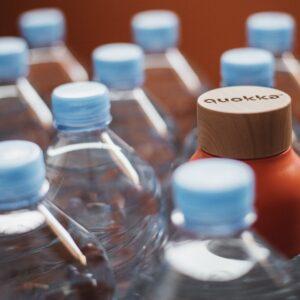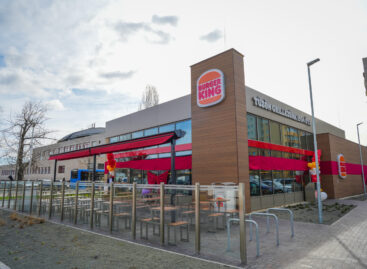Older people are leading DRS in Hungary
Although Hungary ranks among Europe’s leaders in the use of deposit return systems (DRS), a new international study highlights a less visible divide: support for the system is significantly higher among older generations than among younger people. While 80% of Baby Boomers support the DRS, this rate is only 59% among Gen Z respondents.
 According to a fresh international survey conducted across 16 countries, Hungary is now one of the most successful markets for circular packaging and mandatory deposit return systems. The study, carried out with more than 16,000 participants, shows that globally 71% of people support DRS schemes, and 88% believe that returned beverage containers are genuinely recycled. Even in this favourable global context, Hungary stands out: 98% of Hungarian respondents already use the system and show above-average awareness of what sustainable packaging means. The research was commissioned by the international awareness programme Every Can Counts and conducted by Made with Insight, with 1,015 respondents in Hungary.
According to a fresh international survey conducted across 16 countries, Hungary is now one of the most successful markets for circular packaging and mandatory deposit return systems. The study, carried out with more than 16,000 participants, shows that globally 71% of people support DRS schemes, and 88% believe that returned beverage containers are genuinely recycled. Even in this favourable global context, Hungary stands out: 98% of Hungarian respondents already use the system and show above-average awareness of what sustainable packaging means. The research was commissioned by the international awareness programme Every Can Counts and conducted by Made with Insight, with 1,015 respondents in Hungary.
Hungary among the top performers in DRS usage
Based on data from countries that already operate deposit return systems — Ireland, Romania, the Netherlands and Hungary — participation becomes widespread almost immediately after launch. In these countries, 90% of respondents take part in returning beverage containers. Hungary surpasses even this strong group: 98% of Hungarian respondents say they use the DRS, and only 2% say they never participate.
The system is not only well known but has become a routine habit.
• 54% of Hungarians say they always return their empty containers,
• another 28% do so frequently.
This means that 82% of the population uses the DRS regularly. Trust in the system is similarly high: in line with the global figure (88%), Hungary belongs to the high-confidence countries.
Generational data shows that returning beverage containers is particularly intuitive for older consumers. Among Baby Boomers, support for the DRS reaches 80%, while among Gen Z (ages 16–28) it stands at 59%. For older generations, deposit return is a familiar practice returning in modern form, whereas younger consumers need clearer explanations and more personal connection to understand and appreciate the role of recycling.
What does sustainability mean to Hungarians?
One of the survey’s most striking findings is how Hungarians define sustainable packaging. Globally, 57% of respondents say truly recyclable packaging is one that can be turned back into the same type of product again and again. In Hungary this rate is much higher, at 66%, placing the country alongside Brazil, Romania, Greece and Poland in the top tier.
For 41% of Hungarian respondents, it is also important that packaging contains recycled material. The study also reveals that in countries with DRS — including Hungary — many people associate sustainability with reusability, meaning that a package should be suitable for multiple-use cycles. In everyday thinking, sustainability has already moved well beyond selective waste collection.
“Sustainability doesn’t have to be about complicated technical terminology,” said David Van Heuverswyn, Global Director of Every Can Counts. “The survey shows that more and more people believe good packaging is the kind that can be turned back into the same product repeatedly. Aluminium cans do exactly that — yet few people are fully aware of their performance. This is the awareness gap we need to close.”
Aluminium cans as a leading example
Globally, aluminium beverage cans are the most recycled single-use beverage container. According to analysis by Eunomia Research & Consulting and the International Aluminium Institute, aluminium cans have a global recycling rate of 71%, compared to 34% for glass and 40% for PET bottles. The recycling process for collected aluminium cans is around 90% efficient, and their closed-loop recycling rate — when a can becomes a can again — reaches 33%.
Importantly, 98% of recycled cans become products that can be recycled repeatedly, and some cans return to store shelves as new packaging in as little as 60 days.
“These numbers confirm exactly what we see every day,” Van Heuverswyn added. “People care about the environment and want to feel they are part of the solution. They want to understand why real recycling matters. Deposit return systems are only the beginning, not the end goal. Every Can Counts now works in 21 countries to help more people learn about the remarkable sustainability performance of aluminium beverage cans.”
Related news
40 secure jobs, sustainable solutions – new BURGER KING® in Csepel
🎧 Hallgasd a cikket: Lejátszás Szünet Folytatás Leállítás Nyelv: Auto…
Read more >Carrefour and Coca-Cola are focusing on refillable glass bottles
🎧 Hallgasd a cikket: Lejátszás Szünet Folytatás Leállítás Nyelv: Auto…
Read more >Fashion, drones and sustainability – the new face of agriculture at the AgriTech InnoExpo event
🎧 Hallgasd a cikket: Lejátszás Szünet Folytatás Leállítás Nyelv: Auto…
Read more >Related news
How does the forint exchange rate affect consumer prices?
🎧 Hallgasd a cikket: Lejátszás Szünet Folytatás Leállítás Nyelv: Auto…
Read more >HELL CITY has arrived, led by Michele Morrone
🎧 Hallgasd a cikket: Lejátszás Szünet Folytatás Leállítás Nyelv: Auto…
Read more >Two million people have already voted, so 57 million forints will be given to locals in 125 settlements, courtesy of Tesco
🎧 Hallgasd a cikket: Lejátszás Szünet Folytatás Leállítás Nyelv: Auto…
Read more >








